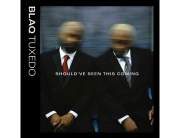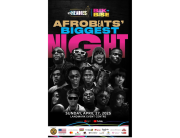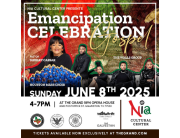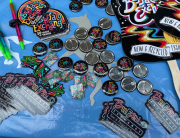As an artist – especially an indie artist, it’s very easy to find yourself chasing the rabbit of promotion. Don’t get me wrong, promotion is essential to every artist’s career. However, a very common mistake I’ve seen artists make (including myself) is losing scope with their promotion efforts. Too often artists make decisions about promotion based on emotion, rather than on a scientific approach. For example, every recording artist would love to see their name on and moving up the charts. This becomes a problem when it’s only based on the emotion, the high of that accomplishment, rather than having a plan and purpose for seeking that out. If there’s no plan beyond “look mom, I’ve charted”, it’s all emotion and counterproductive. Before long, you’ll find yourself spending thousands of dollars feeding the promo machine and your ego – a good recipe for disaster. If at least part of the plan is to convert charting into something tangible and lucrative like high profile and high paying performances, then have at it!
Let’s face it, while an artist is struggling to build name recognition and gain a better foothold in the music game, EVERYONE has their hand out. And sadly, the very last one with any hope of making money in the music business is the artist. While attempting to navigate the promotion gauntlet, most often artists inevitably become trapped on the hamster wheel of promotion versus emotion. What do I mean by that? Very simply, artists become completely distracted from their personal mission and goals and instead find themselves lost in the quagmire of competing in someone else’s vision. That’s very often displayed by spending tons of money in a certain area of promotion that may not quite fit that artist’s goals and vision. Everyone wants to be respected and appreciated for their craft. That doesn’t mean that your respect and appreciation must mirror anyone else’s – neither should it.
Before you find yourself in the never-ending cycle of riding the carousel of promotion, I recommend the following:
Ask yourself these questions:
- What do I want out of my music career?
- Do I want to be a major act locally, nationally, internationally?
- How do I plan to get people to know about me and my music?
THEN
- Refocus. Put some blinders on, if necessary. Don’t completely block out the outside world, but definitely focus on YOUR goals and accomplishments.
- Plan. If you haven’t already done so, write down how you want your music career to look. Remain open and flexible but at least map out your career path and goals.
- Budget. Although the cost of making music has come way down due to constant advancements in technology, promotion costs have not. Your promo budget won’t look exactly like anyone else’s, but should be reflective of the goals and plan you’ve laid out. Your promo will be the highest cost of your venture – if you plan to follow the more traditional music business role.
Let’s visit 3 main arms of music promotion:
Radio Promotion
If radio promotion is in your plans, ask yourself why? I’m not at all suggesting you don’t pursue radio promotion. I’m only advising you to understand why it is or isn’t a viable avenue for you. If radio promotion is part of your strategy, you’ll want to vet a reputable independent radio promoter. Things to consider include but are not limited to how long will the campaign (for each song) last; how much does the term of promotion cost; what’s the cost to extend a promotion; what’s the promoter’s track record? (Which charts and chart positions have their artists attained and what’s their reputation in the business?); how many artists and/or songs does the radio promoter represent/pitch at one time; is the radio promoter completely independent or is he/she beholden to a record label? There are ways to get your music to radio program managers without a promoter. The question becomes, are you willing and able to do the tremendous amount of legwork required to accomplish this? Also, be sure to ask yourself why you would consider the expense of radio promotion. The average independent radio promotion campaign can range from $300 per week to $1,000 per week or more, depending on the genre. Is radio a justifiable consideration? Are you trying to earn a place on “the charts”? If so, why? Keep in mind that in an age where “everybody’s got a chart”, not all charts are the same or carry the same weight.
Social Media Promotion
Extremely vital in today’s world is an effective social media marketing campaign. Again, you COULD do all the legwork yourself. The question is, should you? There are those out there that specialize in this arena and are very familiar with nuance strategies most artists are not. Plus, how can you be sure you’re posting the right content on the right platform(s) at the right time(s)? Yes, there’s a science to it. Just throwing something against the wall and hoping it sticks is NOT a good strategy. In my opinion, a professional, experienced social media marketing manager is a must for any music career. Do your homework and vet any social media people you’re considering working with.
Publicity
Not to be confused with social media marketing (although the two can sometimes intersect), publicity is also a must for your music career. A good publicist will have access to opportunities and industry gatekeepers the artist couldn’t even imagine. In addition, they have the experience and ability to create effective press releases, networking and interview opportunities, as well as chances to interface with key publications vital to your career. When deciding on a publicist, check their credentials and client roster. Don’t get sucked in by the sparkling social media pics they post, which are easily misconstrued as client representations – which are usually just casual event pics. Publicists and social media marketing managers should become friends to the artist, getting to know them intimately. This builds trust and helps the artist navigate the industry landscape better. A good publicist can easily run you thousands of dollars per month, but if you can afford it – they’re easily worth their weight in gold.
In closing, make sure your decisions on promotion are scientific and NOT guided by emotion. And don’t be afraid to try things that rattle your comfort zone.
About Darryl Evan Jones: Bronx-born, classically trained flutist and Ambassador of Instrumental Soul grew up playing in church, has released 4 studio albums, and opened for major names like Boney James, Howard Hewett, Jeff Lorber and Kem. Darryl Evan Jones wrote or co-wrote most of the songs he’s recorded. He has a most unique style and is beloved my his ever growing fanbase. Keep up with Darryl Evan Jones at www.dejmusic.com.
Photo Credit: Courtesy of Thomas Estey







Add Comment